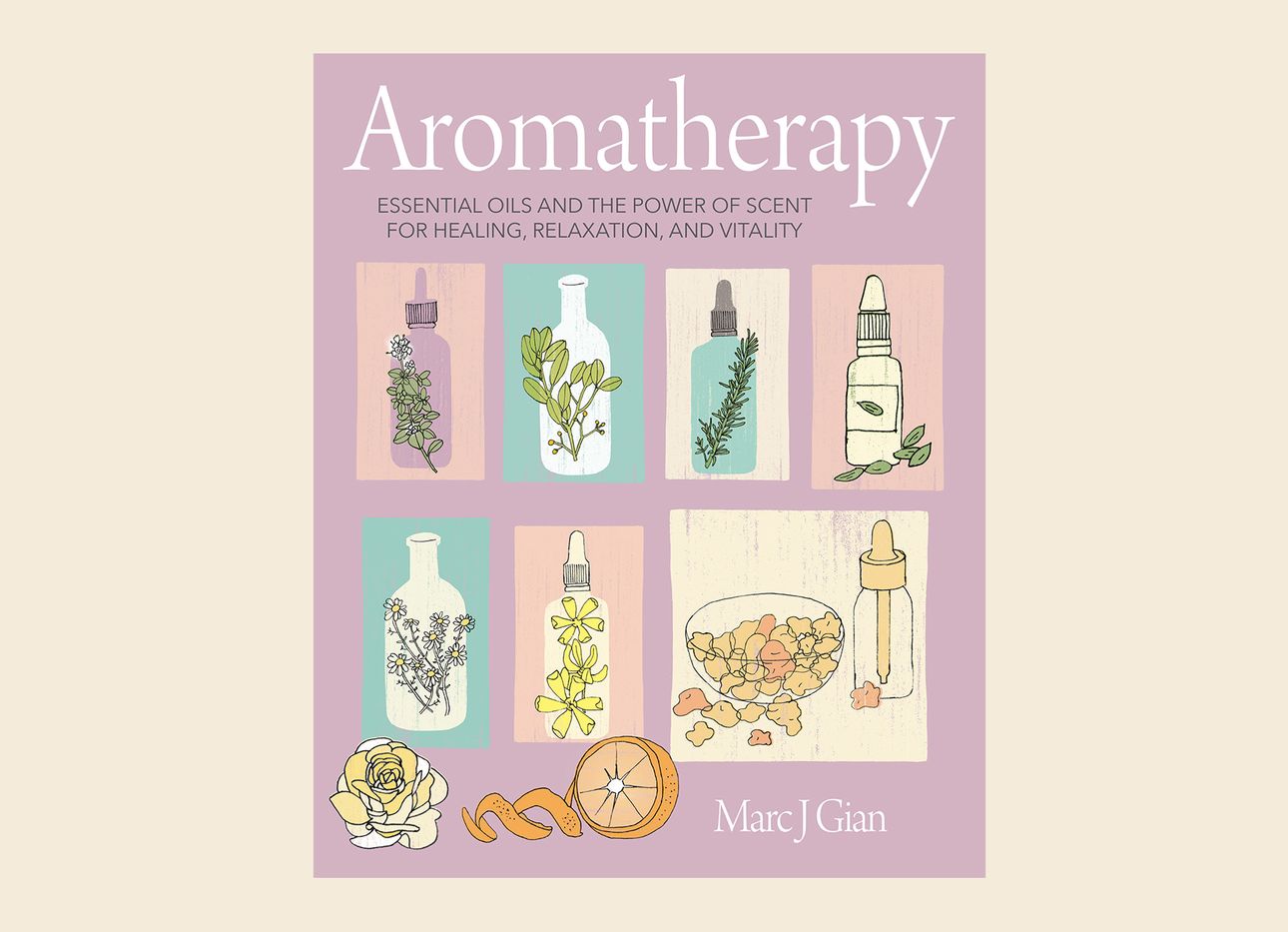
How to Use Essential Oils to Improve Your Mind, Body, and Mood
The origins of aromatherapy can be traced back more than 3,500 years, when essential oils were first recorded in human history for their spiritual, therapeutic, cosmetic, and medicinal properties. In the centuries since, numerous studies have shown the positive effects that scent can have on our minds, bodies, and moods.
To learn more about the practice and how to harness it, we recommend reaching for Aromatherapy: Essential Oils and the Power of Scent for Healing, Relaxation, and Vitality (CICO Books), an approachable resource that lays out the origins, olfactory profiles, benefits, and applications of dozens of plant compounds. Written by Marc J. Gian, who runs a holistic healing practice in New York City, the entries often include unfamiliar aspects of familiar savors: lemon, for example, smells best if cold-pressed and can be diffused with eucalyptus or rosemary to help focus the mind; and peppermint’s analgesic properties can be used to treat neck pain caused by the common cold—but not by blood deficiency, which should be treated with Roman chamomile and palmarosa. Gian also outlines how to inhale an elixir, including through cupped hands with oiled palms, or, for those with insomnia, by placing a drop of oil at the furthermost top edge of a pillow; the role of aromatherapy in Chinese medicine; and recipes for blends that induce relaxation.
Throughout, Gian gently reminds readers of scent’s powerful ability to improve how we feel, both physically and mentally, and the value of using smells to self-heal. “Essential oils act directly on the limbic system, the part of the brain that regulates much of our emotional landscape and our base responses to stressors such as fear,” he writes. “In this way, essential oils are key to working through our behavior adaptations to stress, and moving us to a place of true rest and rehabilitation.”